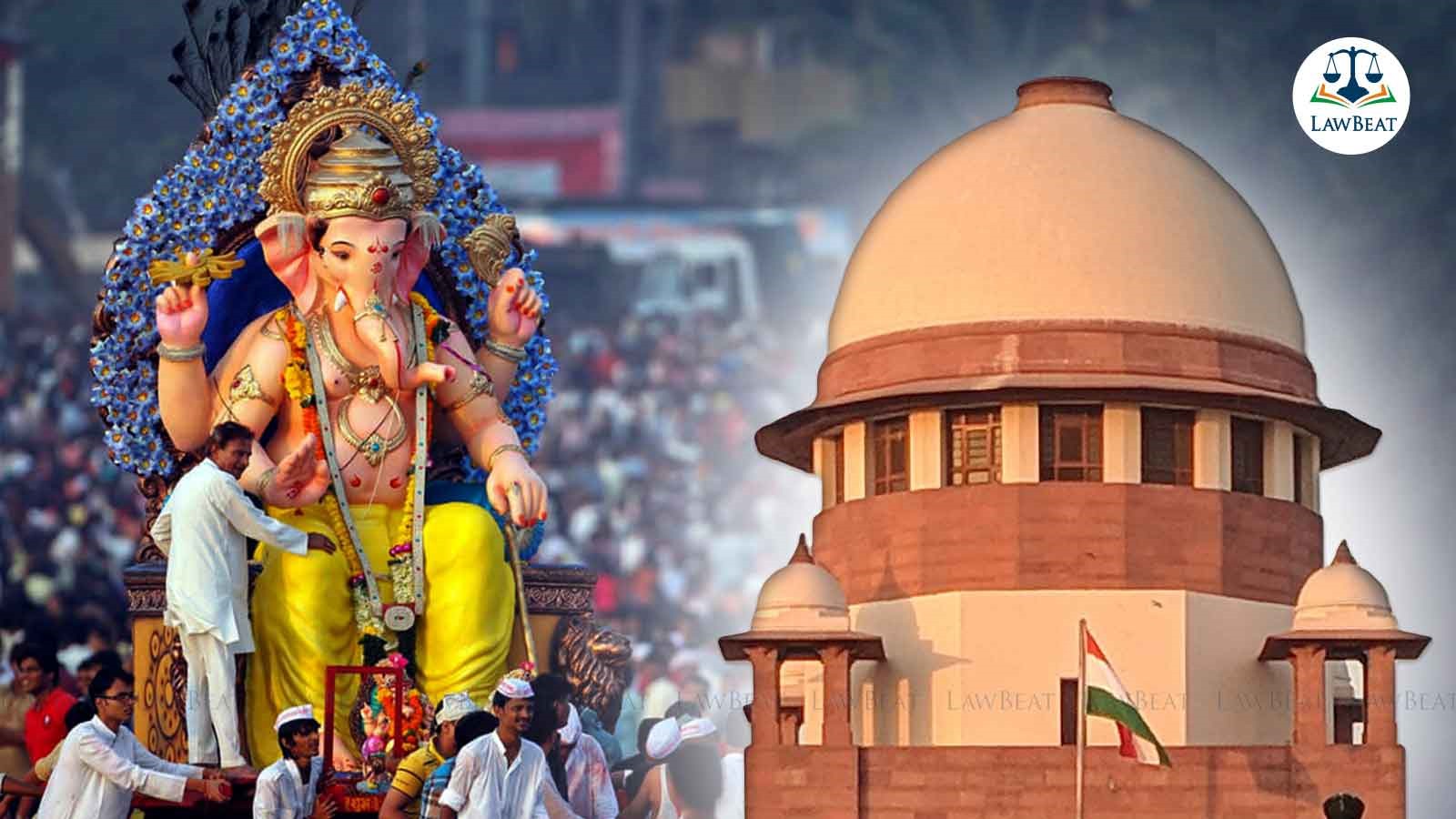"Sorry, you should have used natural clay": SC refuses to lift blanket ban on sale and immersion of Ganesha idols in Tamil Nadu

The Supreme Court today refused to interfere in a Madras High Court order directing a blanket ban against the sale and immersion of Ganesha idols which are made of plaster of Paris in the state of Tamil Nadu. The idols are immersed as part of the Ganesh Chaturthi festivities on September 19.
A bench of CJI DY Chandrachud, Justices JB Pardiwala & Manoj Misra heard Senior Advocate Shyam Divan who appeared for a manufacturer of Vinayaka idols, challenging a division bench of Madras High Court order of September 17, which had restrained the sale and immersion of Ganesha idols made of plaster of Paris in the state. The order came as an interim stay against a single judge order of September 16, which allowed the sale of such idols, while making alternative arrangements for immersion.
Divan informed the bench that there were guidelines in place which are issued by the pollution board and they did not prohibit the sale of idols.
However, the respondent state pointed out that the immersion is what caused pollution and the pollution board even restrained the immersion of those idols which were made of natural substances.
At this juncture, the CJI agreed that there were guidelines already in place and they were not to be interfered with and neither was the order by high court's division bench meant to be meddled with.
In the morning today, Divan told the bench,
"How can they ban sale of the work the artisans have done?"
"Lets hear it at end of board," the CJI agreed early in the day.
The idol manufacturer has said that his right to life is affected under Art. 21 of the Constitution of India as the police officers have illegally and without any due notice and procedures u/s 102 Cr.P.C 1973 seized the idols and harassed him and threatened him with dire consequences.
"No report is seemed to have been sent to the Jurisdictional Magistrate regarding the seizure of the property. It is submitted that Plaster of Paris is not an illegal or a banned substance as any of the drugs under the NDPS Act 1985. Hence, the Respondent-State failed to adhere to due process enshrined under the Law and the Constitution of India," he has averred.
The single Judge of the High Court had passed an order permitting the Petitioner to make eco-friendly idols within the rules and regulations while also upholding regulations restricting the immersion of idols that are made of toxic and polluting substances in the river water. However, while relying on NGT guidelines, the division bench stayed the order, after the state preferred an appeal before High Court.
It is the case of the petitioner that the interim order has failed to appreciate the Guidelines of the CPCB so vehemently relied on by the Respondent-State. "The ban extended on Plaster of Paris is not to be confused with manufacture of idols, but only with immersion in the water bodies. Even the recitals prior to Guidelines 2.0, the one titled for manufacturers is concerned with immersion," the manufacturer has said.
Case Title: Prakash Vs. The District Collector and Ors.
